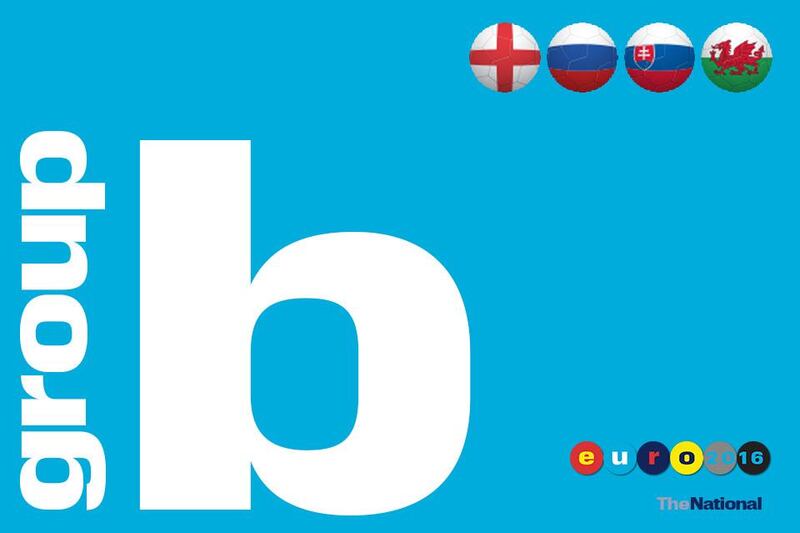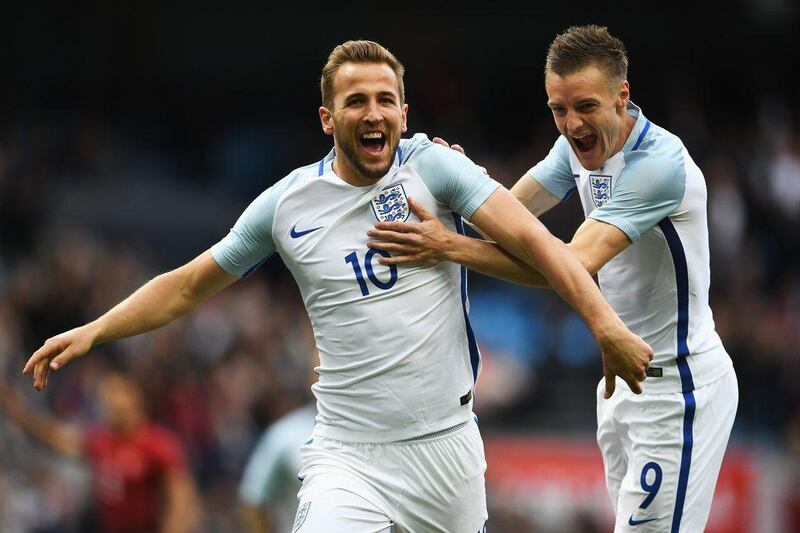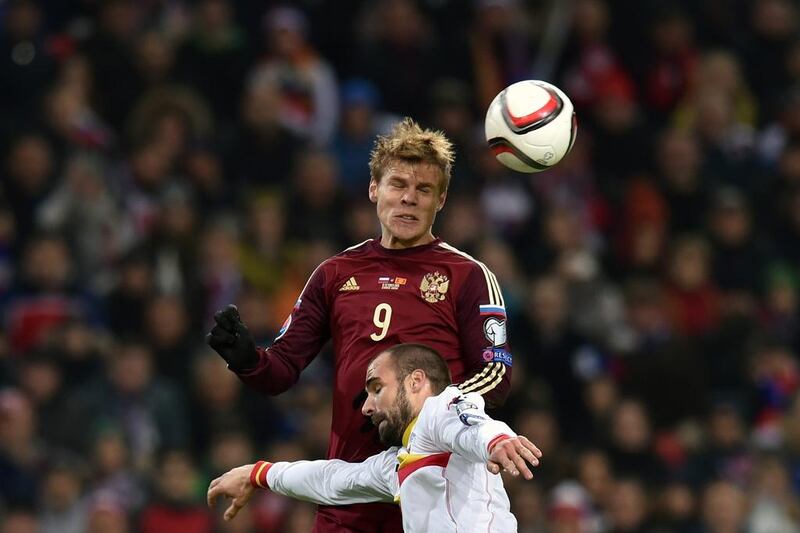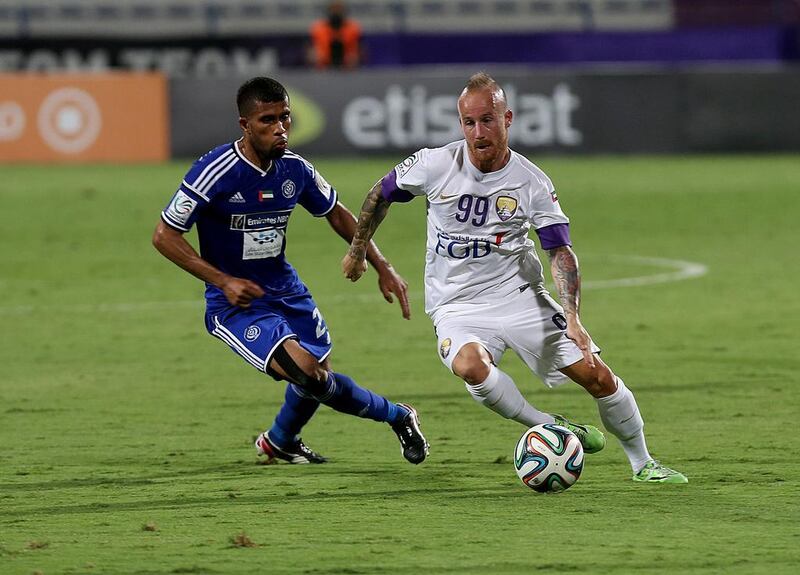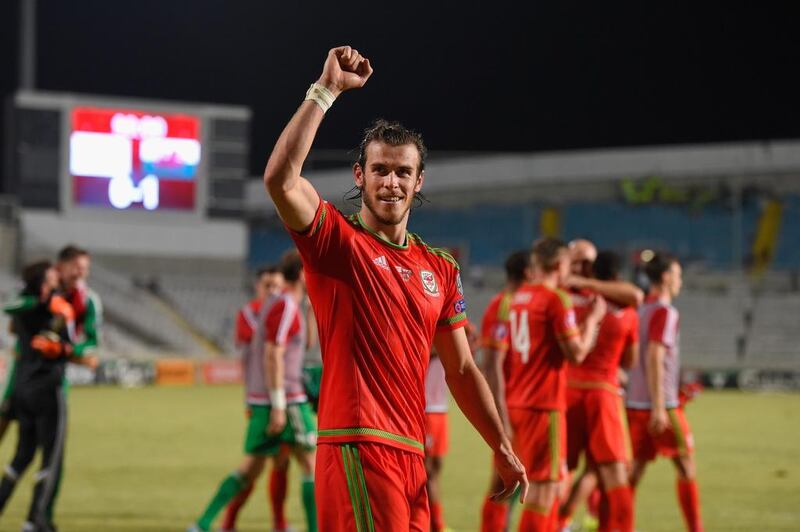Richard Jolly breaks down the four teams in Group B of Euro 2016.
More Euro 2016 Group previews:
[ Group A ]
[ Group C ]
[ Group D ]
[ Group E ]
[ Group F ]
Follow us on Twitter @NatSportUAE
Like us on Facebook at facebook.com/TheNationalSport
A pool that offers opportunities for everyone, but potentially pitfalls, too. Certainly Groups C, D and E look tougher and while Slovakia are probably the minnows in this group, progress should be very possible for them, too.
The most eye-catching game is England’s meeting with Wales in Lens on June 16 which will be the first time the neighbours have met in a major tournament.
Indeed, it is both Wales’ and Slovakia’s first European Championship, giving a welcome air of novelty to a tournament that will feature plenty of new faces.
While Russia, as the Soviet Union, won the inaugural Euros, in 1960, and, in their current guise reached the semi-finals in 2008, they and England may represent the continent’s two major underachievers in the 21st century.
This is the chance to change that. Winning the group brings a fine prize, in the shape of a last-16 tie against a third-placed team.
Even the runners-up could plot a path to the quarter-finals. They would face the second side in Group F, potentially Austria, in the first knockout game.
Group B fixtures (all kick-off times UAE)
*Correction: Times earlier were incorrectly shown as an hour later.
• June 11: Wales v Slovakia, 8pm
• June 11: England v Russia, 11pm
• June 15: Russia v Slovakia, 5pm
• June 16: England v Wales, 5pm
• June 20: Slovakia v England, 11pm
• June 20: Russia v Wales, 11pm
• Predicted order of finish: England, Wales, Russia, Slovakia
ENGLAND
The only team with a 100 per cent record in qualifying, even if it was helped by being placed in a weak group. England scored 31 goals and conceded only three. Despite that, they represent something of an enigma. Beating world champions Germany in a friendly was auspicious, losing to Netherlands less so. They were dull quarter-finalists at Euro 2012 but beat an ignominiously early exit from the World Cup.
They should survive longer but their prospects depend on a defence that looks fallible against the best and selecting the right combination of their bright young attacking talents.
• The manager: Roy Hodgson
Conservative figure who has nonetheless overseen an injection of youth. Hoping to extend his contract for another two years.
• Star player: Harry Kane
It would have been Wayne Rooney, but England’s record goalscorer is a player in decline, Kane a rising force. Rapidly emerging as a talismanic figure for both club and country, he should see off competition from Rooney, Daniel Sturridge and Jamie Vardy to be Hodgson’s main striker.
• Wild card: Marcus Rashford
Did not even debut for Manchester United until February, his rise has come at startling speed but the 18-year-old striker seems able to cope with whatever comes his way. Rashford offers pace and skill. One test is if he can influence games as a substitute in the way he has done when starting.
• Potential problem: Injuries
With two of Hodgson’s favourites, Alex Oxlade-Chamberlin and Danny Welbeck, ruled out and two more, Jordan Henderson and Jack Wilshere, short of match practice. Plus penalty-taking, a regular flaw in shoot-outs.
RUSSIA
Qualification was secured after Fabio Capello’s dismal reign ended and the more impressive Leonid Slutsky took over. As Russia host the next World Cup, they might be looking towards that, but the defence is packed with veterans, several of them survivors of the 2008 team. Further forward, much rests on Aleksandr Kokorin, who has not always justified the hype. Neither have Russia.
• The manager: Leonid Slutsky
Doubles up as manager of CSKA Moscow and has won the Russian Premier League twice in his day job.
• Star player: Aleksandr Kokorin
With Alan Dzagoev, one of the golden boys of Russian football, ruled out, still more rests with another, Kokorin, who could line up on the left or as a second striker.
He is yet to fully realise his potential and has had a slow start to life at Zenit St Petersburg after a winter move, but he is a potential match-winner and Russia have too few of them.
• Wild card: Aleksandr Kerzhakov
Russia’s record scorer had an ignominious Euro 2012, where he failed to even record a shot on target. But his movement means he can trouble defences and he should be an option, probably from the bench if Artem Dzyuba is preferred as the main striker.
• Potential problem: The mentality
Russia have turned in too many utterly insipid performances over the years, failing to qualify from a weak pool in Euro 2012 despite winning their first match 4-1 and underperforming again in the World Cup.
SLOVAKIA
A 2-1 win over Spain in qualifying was arguably the best result in their history. The problem may be that it came 20 months ago. Slovakia were a team in superb form then, beginning their campaign with six straight wins. They have only won one of the last four and while results in friendlies have been reasonable, they may suggest this team has already peaked. Certainly it is an experienced unit. Many are part of the team who sprung a surprise by reaching the last 16 of the 2010 World Cup. A similar feat would be another minor upset.
• The manager: Jan Kozak
Veteran manager and former Czechoslovakia midfielder who, as a player, was in the team that finished third in Euro 1980.
• Star player: Marek Hamsik
No doubt about it. Comfortably the classiest player in Slovakia’s squad, the Napoli playmaker was their five-goal top scorer in qualifying. The captain is the creative hub of the team but with record goalscorer Robert Vittek now 34, it depends on whether others can convert the chances Hamsik fashions.
• Wild card: Miroslav Stoch
The former Al Ain winger may not quite have lived up to his early promise and might be used as an impact substitute. But he can have an impact. He scored the winner against Spain. He also won Fifa’s Puskas award for scoring the best goal of 2012.
• Potential problem: Their age
It manifests itself in part in a lack of pace in an experienced back four. It may also mean Slovakia tire before some opponents.
WALES
Wales reached the quarter-finals of the 1958 World Cup. Fifty-eight years on, they are belatedly back in a major tournament, after an impressive qualifying campaign when they took four points from their meetings with Belgium. Much of the focus goes on two match-winners, Gareth Bale and Aaron Ramsey, with Chris Coleman configuring a team to give them as much freedom as possible. Yet they also have a well-drilled defence that was only breached four times in qualifying and which could provide the platform for progress to the knockout stages.
• The manager: Chris Coleman
Had the difficult task of taking over after the late Gary Speed’s tragic death and, after a slow start, has gone on to make a huge impression.
• Star player: Gareth Bale
The Welsh “Galactico” is a devastating force whose commitment to his country sets the tone for a determined, patriotic group. Qualification would have been impossible without Bale, who scored seven of his side’s 11 goals and played a part in three others. Coleman gives him the licence to go where he wants.
• Wild card: Jonny Williams
A major talent whose brief career has already been hampered by injuries but who could represent the most creative option on the bench for Coleman. Williams finished the season on loan at MK Dons from Crystal Palace but while he has had a stop-start club career, his place in Wales’ plans seems more secure.
• Potential problem: A dependence on Bale
Wales are desperately short of specialist strikers and they rarely score, meaning that if opponents can stop Bale, they can probably halt Wales.
